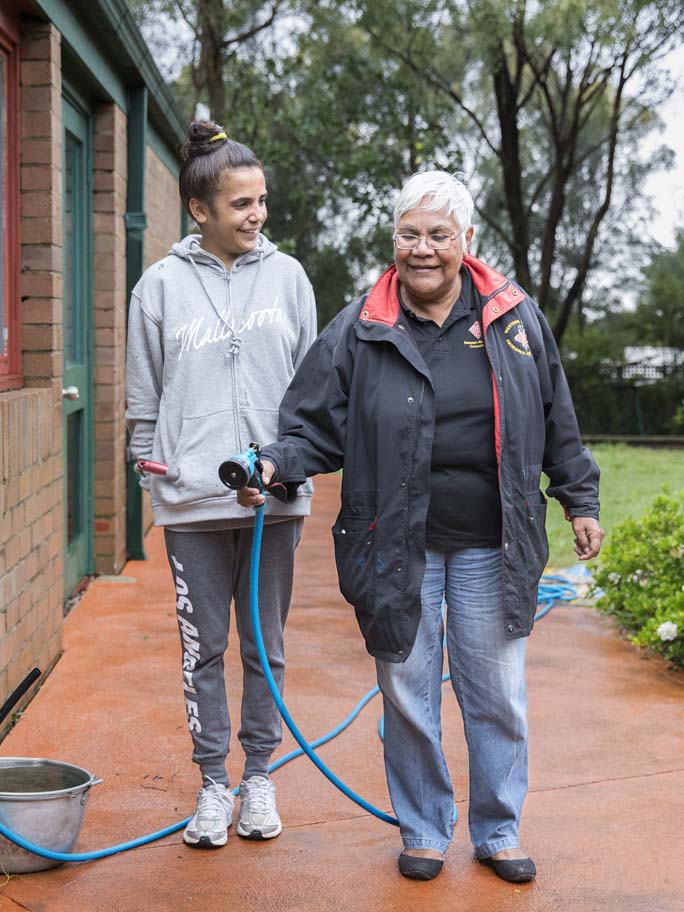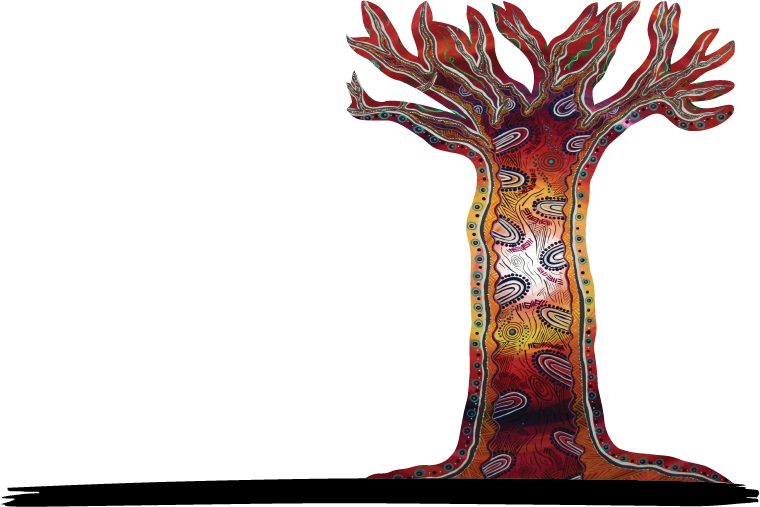
We acknowledge the Traditional Owners of country throughout Australia and recognise their continuing connection to land, waters and culture. We pay our respects to Elders past, present and emerging.
Aboriginal peoples are the world’s oldest continuous cultures. Aboriginal Elders are keepers of cultural knowledge, wisdom and are respected, trusted community leaders and educators, passing traditions to younger people and support maintaining connection to Country. As Aboriginal people age, it is vital that they are enabled and supported to age well.
The Ironbark program was developed to empower and support older Aboriginal people as they age. The program is the first fall prevention community program co-designed for and with Aboriginal people. Aboriginal leadership occurred in all of the program development, and yarning circles and community-controlled stakeholder engagement directly informed the program and resource development.
The Ironbark Program is the first fall prevention program in Australia, developed and evaluated specifically for and with Aboriginal people.
Our program incorporates exercises, which challenge balance and improve strength and a yarning circle which focuses on fall risk factors.


Jake Byrne, a Kamilaroi man, named the project because “the Ironbark tree, native to our land, evokes images of old, strong, trees standing tall and that is how we see our Elders, standing strong and tall as they age.”
Kylie Cassidy, a Wiradjuri woman, is the artist of the Ironbark Program logo.
“The symbols I have used in the tree are representing land and water. The tree symbolises strength and growth, the root system symbolises life and staying grounded. Around the tree are dreaming symbols representing our people and our cultural connection.”
We acknowledge the Traditional Owners of country throughout Australia and recognise their continuing connection to land, waters and culture. We pay our respects to Elders past, present and emerging.